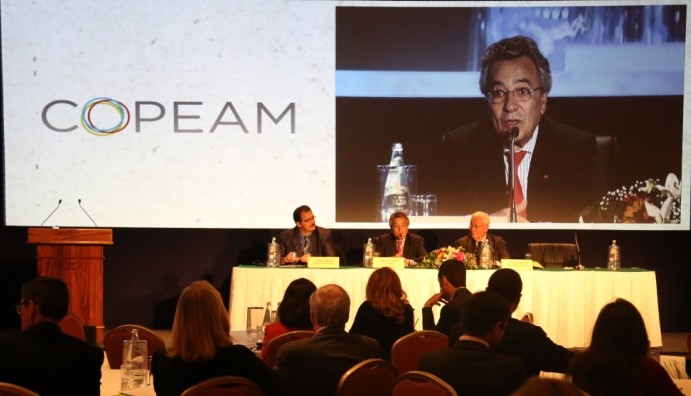21st COPEAM General Assembly
Malta, 28 March 2015
Final Resolution
For several years now, the dramatic events that shake the Mediterranean have been making the media headlines: the stories of survivors of sea tragedies; images of men, women and children escaping from their home countries due to conflicts and economic crisis, or for personal, ideological or religious reasons; data and statistics that give, coldly, a dimension of this exodus.
Media, and in particular public service media, have to raise the awareness on these dramatic events taking place every day at our doorsteps. The portrait of this phenomenon influences public opinion, both in the country of origin and in the ones of transition and destination. Media need to be objective in choosing images, words and storytelling, information sources, to avoid prejudices and stereotypes, thus granting pluralism and diversity of opinions.
It is in this framework that COPEAM, as a professional Association gathering the broadcasters of the Mediterranean region, has to act, aware of its responsibility, contributing to the development of a regional public opinion.
Relying on the strengths of its network and on a twenty years long experience in the field of audiovisual cooperation and intercultural dialogue, our Association and each one of its members have to engage themselves in the production and promotion of a fair information on migrations and refugees.
A common effort is necessary: through its coproduction, training and international partnerships The “COPEAM method” can make the difference and contribute to the creation of a different way in narrating the migratory phenomena.
In this perspective we appeal to all our members, to our partners and to the wide array of actors of the Euro-Mediterranean region operating in the audiovisual field and in International cooperation to:
- Give more voice to the migrants and their experiences through TV and Radio Co-productions and institutional promos, regardless their ethnicity and religious beliefs;
- Strengthen journalistic training on migration topics;
- Promote a fair and complete media coverage of migration phenomena (causes, stakes and effects);
- Facilitate the exchange of best practices amongst the professionals of Media companies and international organizations involved in these topics;
- Promote synergies between Public Media and Local Media which, due to their particular relation with the territory they operates in, they might facilitate the knowledge and understanding of the “other”.

